Date: 2025-08-20
Lung cancer is the deadliest cancer in Taiwan, with over ten thousand deaths annually due to its high incidence and mortality. The Taiwan Cancer Moonshot Project, spearheaded by Academia Sinica in collaboration with the Clinical Proteomic Tumor Analysis Consortium (CPTAC) from the National Cancer Institute (NCI) in the United States, has recently completed the first large-scale proteogenomic study of lung adenocarcinoma that encompasses multi-ethnic cohorts from Europe, North America, and Asia.
Led by Dr. Yu-Ju Chen, Distinguished Research Fellow at the Institute of Chemistry, Academia Sinica, the Taiwan research team unveiled key oncogenic mechanisms of lung adenocarcinoma, identified a high-risk “late-like” subtype prone to recurrence, and discovered multiple clinically-actionable therapeutic targets for this subtype. These findings are expected to provide new opportunities for early detection and precision treatment of lung adenocarcinoma. The study was published in Cancer Cell, one of the most prestigious journals in oncology. The investigation resulted in three key discoveries.
Key Discovery 1: Exploring the Impact of Environmental Carcinogens and Global Validation
Dr. Mei-Yin Chou, Vice President of Academia Sinica, emphasized that since 2016, the Taiwan Cancer Moonshot Project has collaborated with the U.S. National Cancer Institute (NCI) under a formal memorandum of understanding. This collaboration yielded significant findings in 2020, including evidence that Taiwanese women with lung adenocarcinoma were more likely to be non-smokers than smokers. In collaboration with the CPTAC, the current 2025 study expanded patient recruitment and analysis to include international cohorts, thereby enhancing the global validity of these findings.
The 2025 study demonstrated that mutational signatures of environmental carcinogens, such as polycyclic aromatic hydrocarbons (PAHs) and nitrosamines, were detected not only in Taiwanese and Asian non-smoking patients but also across global populations. Furthermore, the study identified tumor subgroups associated with these carcinogens, confirming the universal role of environmental factors in lung adenocarcinoma progression worldwide.
Key Discovery 2: Identification of a High-Risk “Late-like” Subtype and Gender-Specific Risks
Although early-stage lung cancer can be treated with surgery, chemotherapy, or radiotherapy, a significant proportion of patients relapse within a few years. As a result, accurately identifying high-risk patients has become a critical clinical challenge.
Using proteomic profiling, the research team stratified lung adenocarcinoma into three subtypes. Notably, the C2 “late-like” subtype, though classified clinically as stage I, exhibited proteomics patterns highly similar to advanced tumors and carried a markedly higher risk of recurrence and death.
The study also revealed distinct gender-related risk mechanisms. Male patients were predominantly associated with environmental factors such as smoking and chronic exposure to pollutants, which accelerated tumor progression. In contrast, female patients were more susceptible to intrinsic oncogenic drivers, with tumor cells exhibiting stronger immune evasion capabilities. The team highlighted that future precision medicine strategies should be tailored to gender-specific causes of cancer.
Key Discovery 3: New Strategies for Precision Therapy
Beyond elucidating carcinogenic pathways and molecular subtypes, the study provided novel therapeutic insights. By identifying proteins and modification sites highly expressed in specific subtypes—whose silencing compromised tumor cell viability—the team discovered multiple potential drug targets. These findings lay the foundation for a multi-layered therapeutic strategy tailored to subtype-specific patient groups, offering new prospects for precision oncology in lung adenocarcinoma.
The Cancer Moonshot Project continues to provide new insight for developing disease screening, precision oncology, and health policy development. This milestone achievement in global, multi-ethnic lung adenocarcinoma proteogenomics establishes a critical scientific basis for “early identification of high-risk patients and targeted precision therapy.”
This is joint study with the CPTAC led by Dr. Michael A. Gillette, a Senior Group Leader and Principal Investigator, at the Broad Institute of MIT and Harvard. In Taiwan, the study was jointly led by corresponding authors Yu-Ju Chen, Distinguished Research Fellow at the Institute of Chemistry, Academia Sinica, Hsuan-Yu Chen, Research Fellow at the Institute of Statistical Science, Academia Sinica and Sung-Liang Yu, Chair of the Department of Clinical Laboratory Sciences and Medical Biotechnology, National Taiwan University. Senior author Pan-Chyr Yang, Distinguished Professor at National Taiwan University and Academician of Academia Sinica, also provided his expertise.
The first authors are Yi-Ju Chen, Assistant Professor at National Yang Ming Chiao Tung University (former Assistant Research Specialist at Academia Sinica’s Institute of Chemistry), Ya-Hsuan Chang, Assistant Research Fellow at the National Health Research Institutes, and Jin-Shing Chen, Director of the Department of Surgery, National Taiwan University Hospital. Other co-authors included Kuen-Tyng Lin of Academia Sinica, Gee-Chen Chang, Vice Superintendent at Chung Shan Medical University Hospital, and members of the Taiwan Cancer Moonshot Project.
The study was made possible through the contributions of 406 patients who donated clinical specimens. Funding for Taiwan investigators was primarily provided by Academia Sinica, the National Science and Technology Council (NSTC), and National Taiwan University. Funding for the CPTAC team came from National Cancer Institute (NCI) Clinical Proteomic Tumor Analysis Consortium (CPTAC) grants.
-
Dr. Yu-Ju Chen, Institute of Chemistry, Academia Sinica
(02) 5572-8660,yujuchen@gate.sinica.edu.tw
-
Ms. Savid Paljilji, Media & Public Affairs, Secretariat, Academia Sinica
(02) 2789-9727,savid@as.edu.tw
-
Ms. Steffi Tung Lin, Media & Public Affairs, Secretariat, Academia Sinica
(02) 2789-8820,tunglin@as.edu.tw
-
Link
-
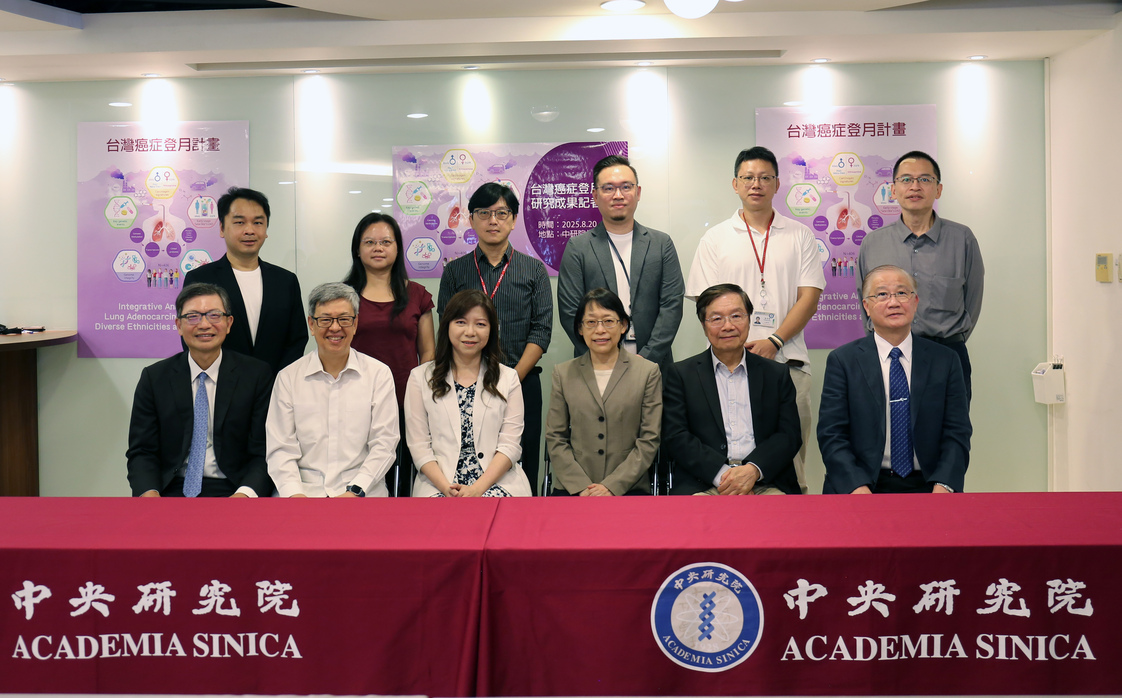 The research team and guests posed for a group photo. Photo credit: Academia Sinica.
The research team and guests posed for a group photo. Photo credit: Academia Sinica.
-
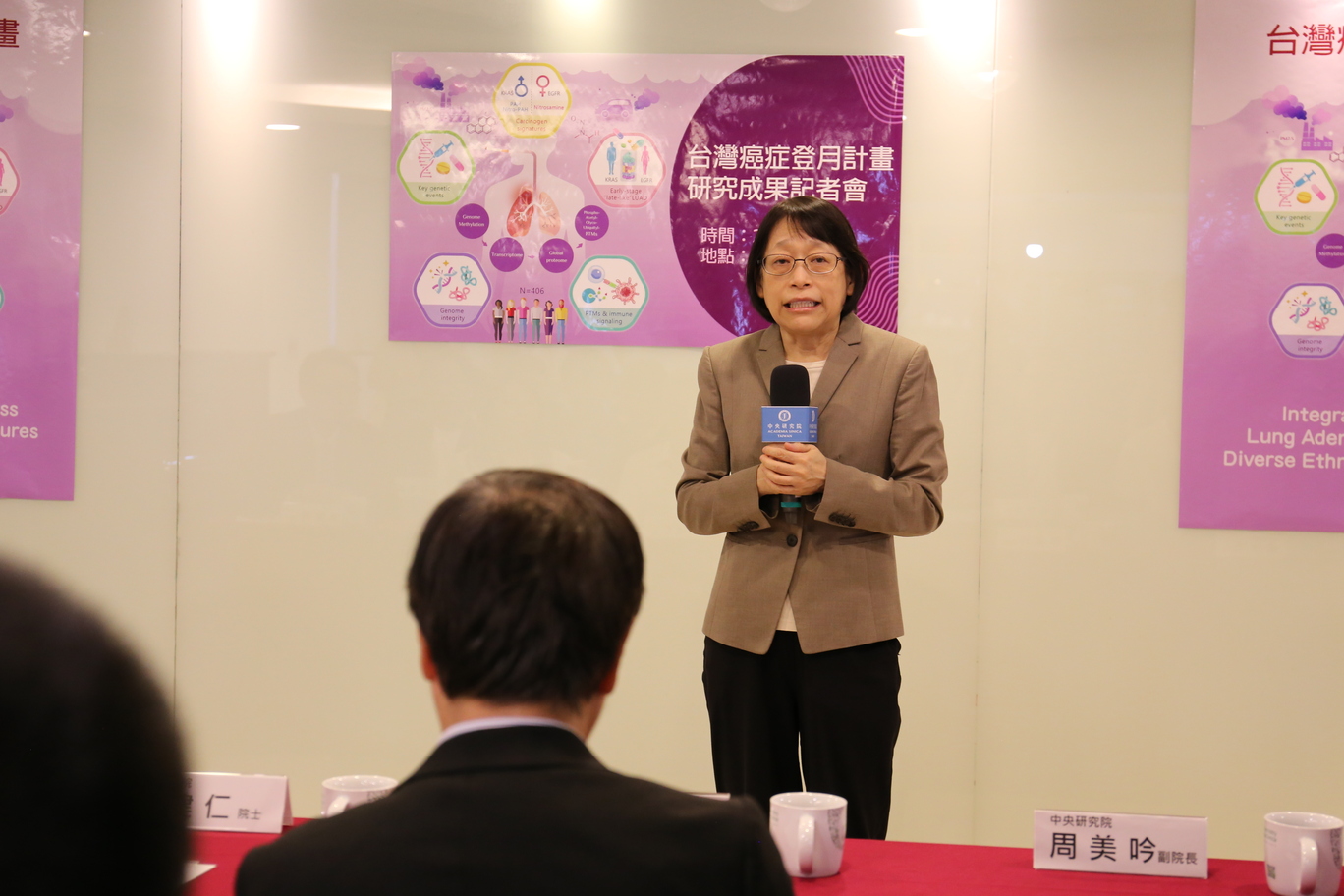 Academician Mei-Yin Chou, Vice President of Academia Sinica, delivered the opening remarks.Photo credit: Academia Sinica.
Academician Mei-Yin Chou, Vice President of Academia Sinica, delivered the opening remarks.Photo credit: Academia Sinica.
-
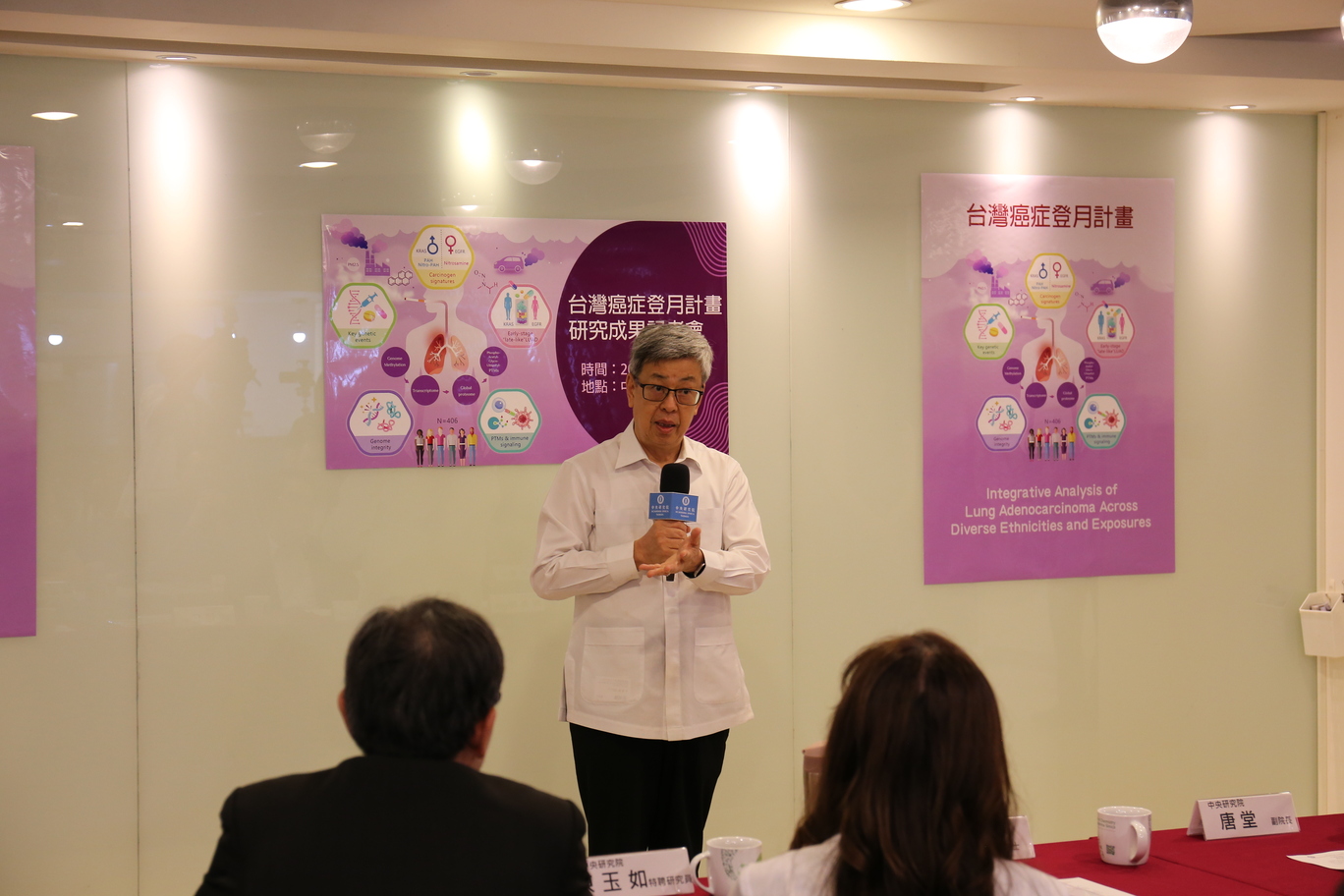 Sc.D. Chien-Jen Chen, Distinguished Professor at the Genomics Research Center, Academia Sinica, delivered some remarks. Photo credit: Academia Sinica.
Sc.D. Chien-Jen Chen, Distinguished Professor at the Genomics Research Center, Academia Sinica, delivered some remarks. Photo credit: Academia Sinica.
-
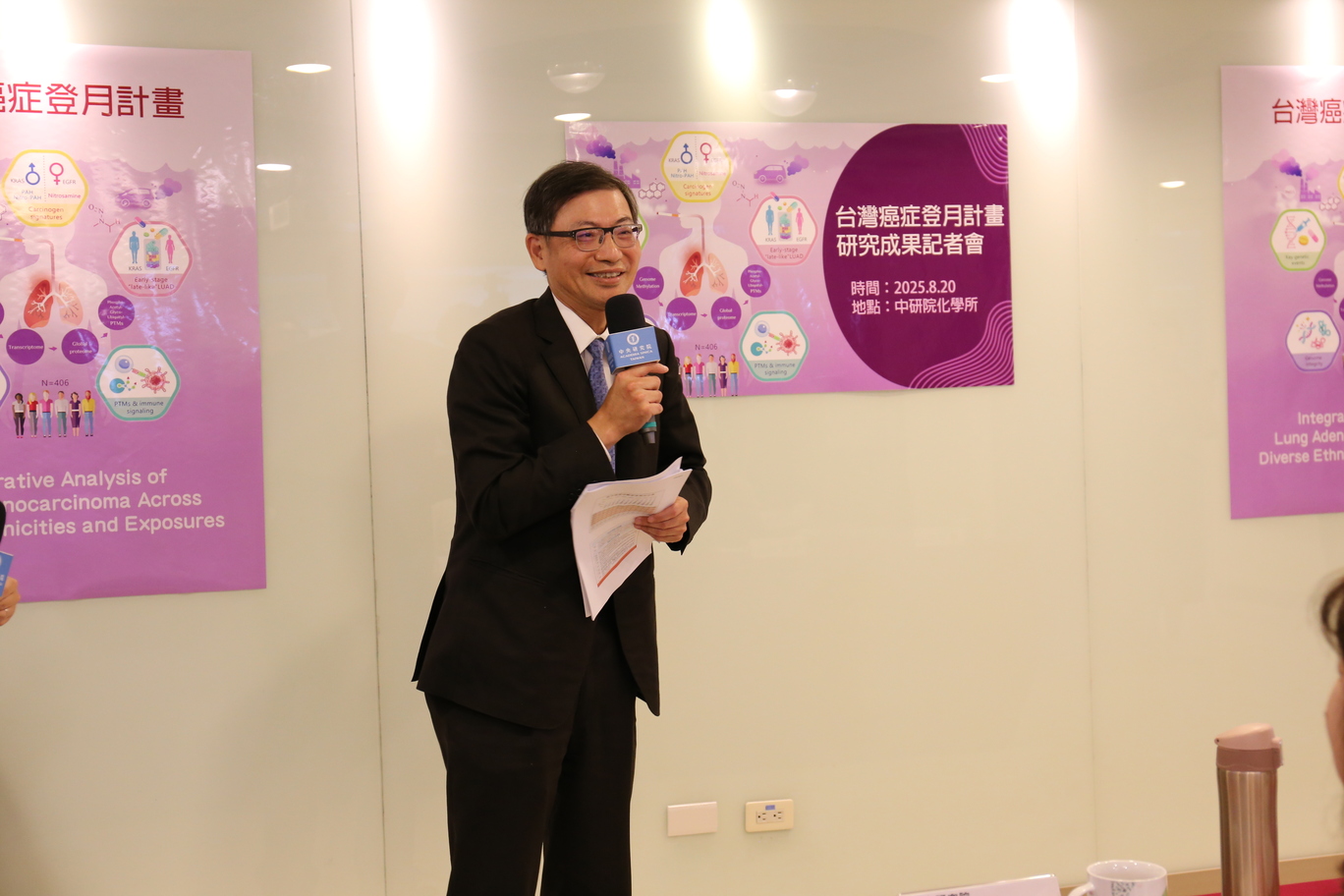 Jin-Shing Chen, Director of the Department of Surgery, National Taiwan University Hospital, delivered some remarks. Photo credit: Academia Sinica.
Jin-Shing Chen, Director of the Department of Surgery, National Taiwan University Hospital, delivered some remarks. Photo credit: Academia Sinica.
-
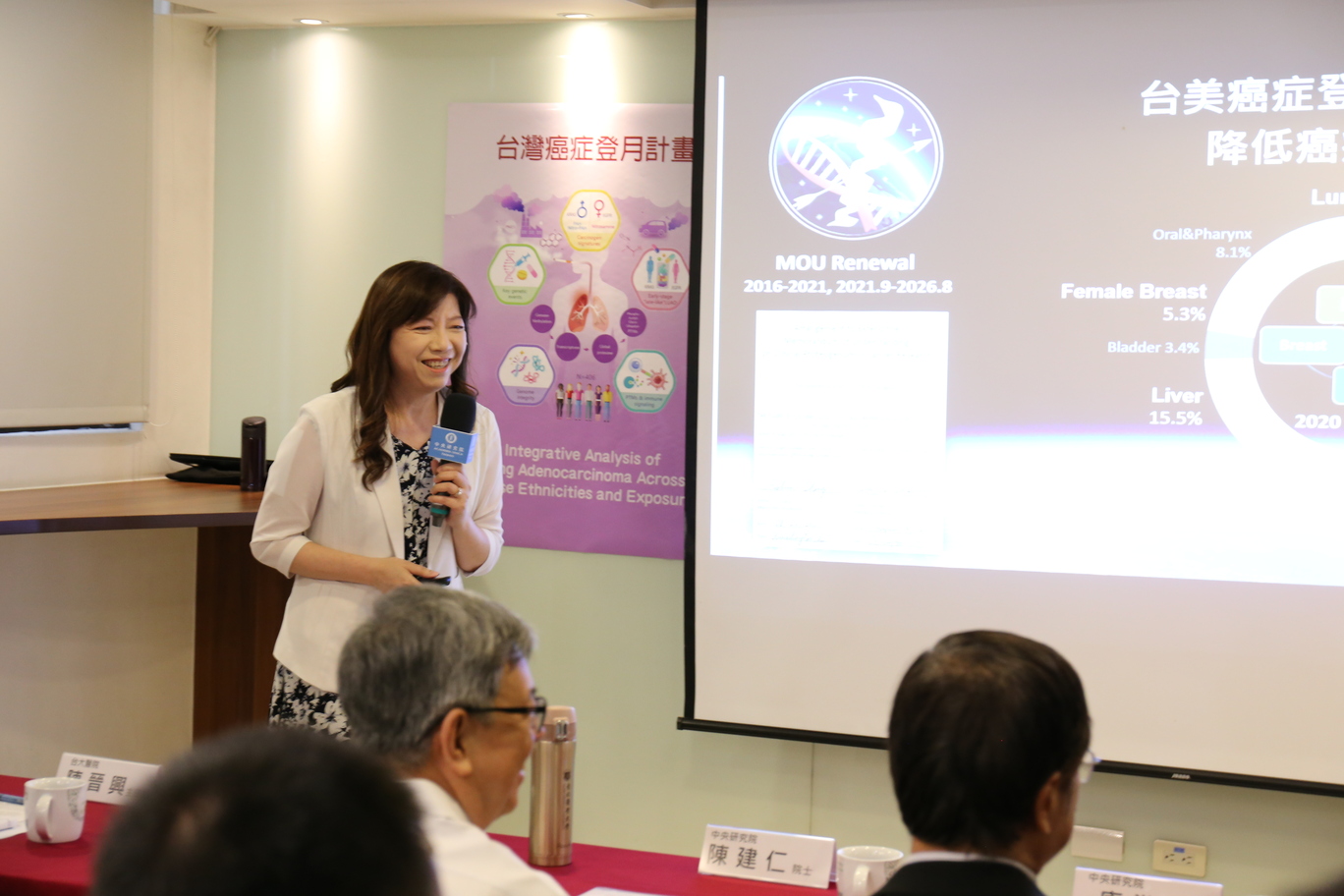 Dr. Yu-Ju Chen, Distinguished Research Fellow at the Institute of Chemistry, Academia Sinica, presented her research findings. Photo credit: Academia Sinica.
Dr. Yu-Ju Chen, Distinguished Research Fellow at the Institute of Chemistry, Academia Sinica, presented her research findings. Photo credit: Academia Sinica.
-
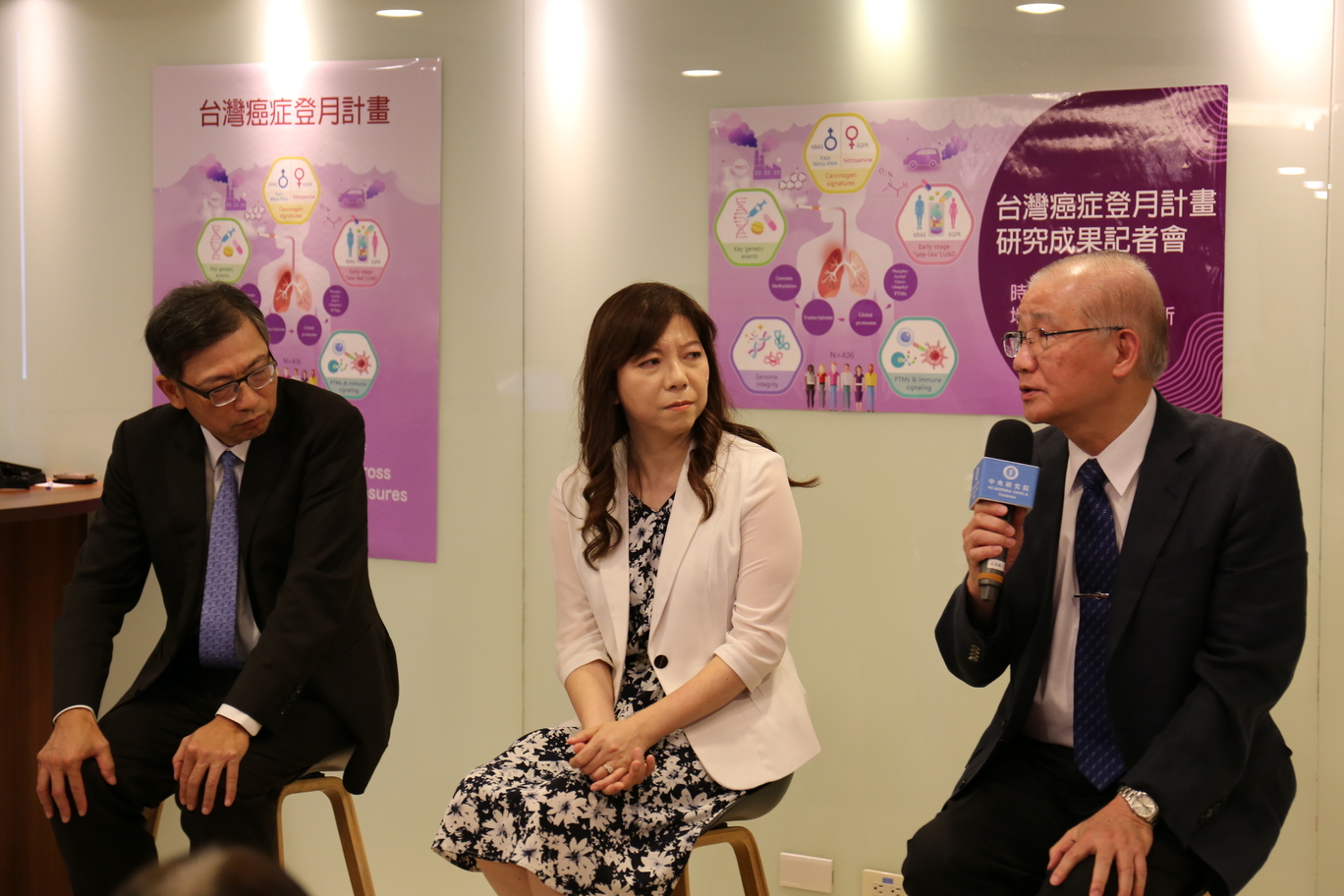 Pan-Chyr Yang, Distinguished Professor at National Taiwan University and Academician of Academia Sinica, provided his expertise.
Pan-Chyr Yang, Distinguished Professor at National Taiwan University and Academician of Academia Sinica, provided his expertise.









 Home
Home
